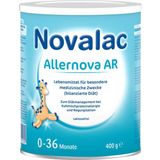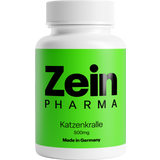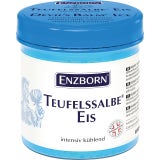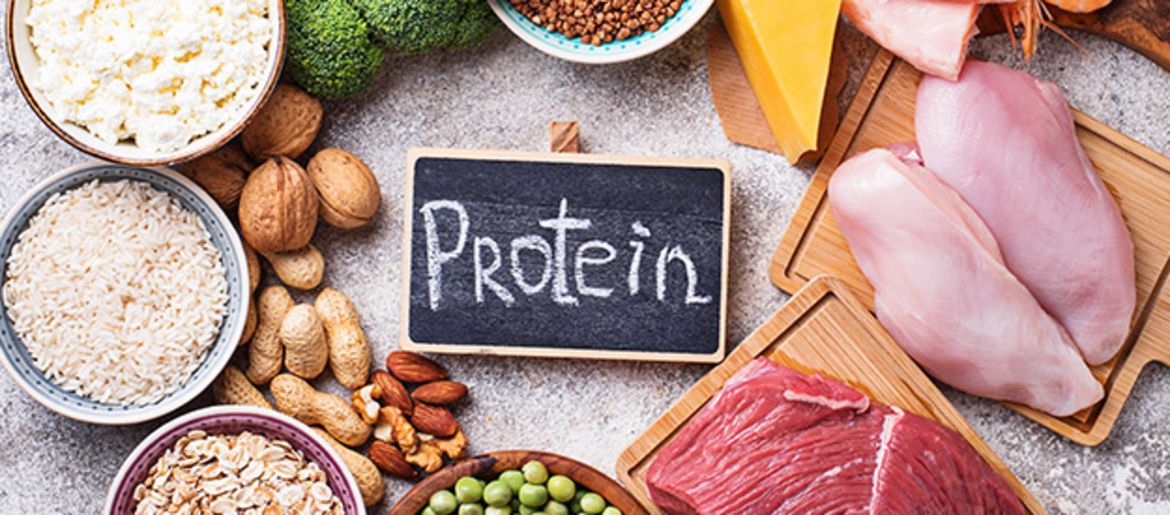Protein: A Building Block for Muscles
The main component of our muscles is protein, which we get through our food. The nutrients in our food are used by our bodies to create new proteins. This is a process that takes place in all the body's organs, including the muscles.
Through muscle protein synthesis, new proteins become available to the body. The more protein we have available, the bigger our resources will be. Unfortunately, protein is also broken down in the body. The protein resources we have available in the body determine whether or not our muscles will grow or decrease.
How Much Protein Do I Need?
For people who strength train, 20 grams of protein per meal is optimal as it leads to a maximum increase in the rate of muscle building. You can consume more protein, but the positive effects will decrease. With twice the amount of protein, i.e. 40 grams per meal, the rate of muscle growth is only 10-20% higher than if you eat 20 grams.
Studies have shown that muscle protein synthesis is optimally supported with an average of 0.25 grams of protein per kilogram of body mass per meal. It was also recommended to use a safety margin because everyone needs a different amount of protein. So the final recommendation is to eat 0.4 grams of protein per kilogram of body mass per meal.
What Kind of Protein is Best?
There are many different sources of protein, and each one stimulates the rate of muscle growth differently. The most important factors that determine the muscle building effects of protein are its amino acid composition and rate of digestion.
The more leucine a meal contains, the greater the muscle-building potential. Leucine can also supplement suboptimal amounts of protein. Whole foods are also good. How muscle proteins react to large mixed meals (made up of whole protein, fat and carbohydrate sources) is not yet known.
In principle, animal proteins are more valuable than vegetable proteins for building muscle. That doesn't mean that vegetable proteins are not suitable for building muscle. If you eat vegetable-based proteins, just make sure to eat a variety so that you cover all the amino acids you need.
When it comes to animal protein sources, meat and fish are best, with eggs and dairy products in the lead. The best all-plant sources are nuts of all kinds, legumes and whole grains. Make sure that the products are as natural as possible for the best results.
Post Workout Eating - What's Best?
Immediately after strength training, the synergy between your workout and protein intake is greatest, with this effect slowly decreasing over the next 24 hours. Some evidence indicates that it is best to consume protein right after your workout for maximum muscle building. Studies have not yet been able to confirm this advantage, however.
This means that the best thing to do is to make sure that you consume a sufficient amount of protein throughout the day. You should distribute your protein intake evenly over breakfast, lunch and dinner. Consuming 20 grams of protein every three to five hours stimulates muscle growth more than consuming the same daily amount of protein in less regular doses (40 grams every six hours) or more frequently (10 grams every 90 minutes) .
Tips On How To Improve Muscle Protein Synthesis:
- Exercise each muscle group at least once, with twice a week workouts even better
- Make sure your exercise is strenuous
- Eat three to five meals every three to five hours throughout the day
- Eat 20-40 grams of protein per meal.
- Eat different sources of protein.
Latest reviews
-
 5.0 (2)
5.0 (2)Novalac Allernova AR, 400 g
Bestseller- 0 - 36 months
- With many vitamins
- Lactose-free formulation
£19.20 (£48.00 / kg)Delivery by April 29
-
 4.5 (11)
4.5 (11)ZeinPharma Cat's Claw Capsules 500 mg, 90 capsules
- From the bark of the cat's claw
- Highly active ingredients
- From South America
£18.40 (£353.85 / kg)Delivery by April 29
-
 5.0 (1)
5.0 (1)ENZBORN Pretty Feet Cream, 75 ml
-5%- Cream-gel consistency
- With urea, hawthorn, jojoba oil & allantoin
- Absorbs quickly & does not stick
£5.29 £5.55 (£70.53 / l)Delivery by April 29
-
 5.0 (4)
5.0 (4)ENZBORN Icy Devil's Salve, 200 ml
- Moisturizes
- Cooling & refreshing
- Can be used with insect bites
£7.70 (£38.50 / l)Delivery by April 29
Magazine Articles:
Discover VitalAbo :
-
Great Britain: Free standard delivery from £49.90
-
Free
returns -
We operate in a
climate-conscious manner. More than 7.800 products

